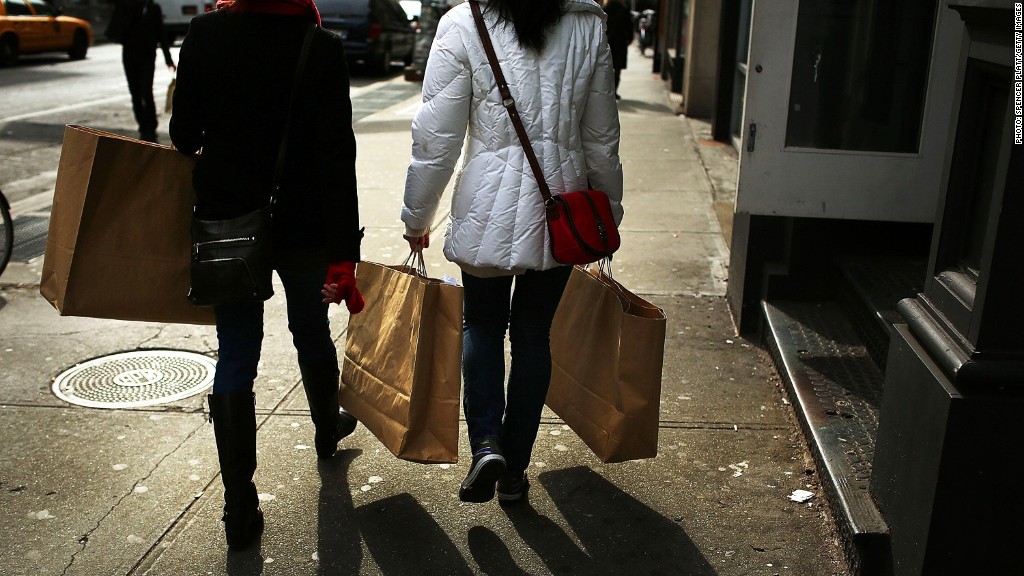
Consumers are nervous about how the fracas in Washington will hit their wallets.
Consumer confidence registered its sharpest one-week drop since the period immediately following the collapse of Lehman Brothers, according to recent Gallup polling
About three times as many people now say the economy is in poor shape as those who say it's doing well.
And consumers' outlook for the future is also deteriorating quickly. Those who think the economy is likely to get worse outnumber those who think it'll get better by a 69% to 27% margin. That's more than twice as large as the gap that existed in the days before the shutdown started Oct. 1. As recently as May, a slight plurality of people thought the economy was getting better.
Related: Social Security, Medicare, other benefits at risk
While confidence has dropped sharply, people aren't as panicked as they were in the fall of 2008 when financial markets were melting down, or in 2009 when job losses soared.
"In theory it can get a lot worse," said Frank Newport, editor in chief at Gallup. "I hope it doesn't."
The short term solutions that are now being considered by Congress won't be much help.
Wall Street and some inside the Washington beltway were cheered Thursday by reports that Republicans might agree to a brief extension of the debt ceiling. But simply prolonging the crisis might just keep consumers on edge and cause more economic damage.
More on the debt ceiling and shutdown
Economists worry that growing consumer anxiety over Congressional gridlock will cause a sharp pull back in spending. That could turn the belief that the economy is weak into a self-fulfilling prophecy. Some of the largest drops in confidence in the past came just before the nation toppled into recession.
"We think we'll see a hit to anything that's discretionary," said Lacey Plache, chief economist for Edmunds.com, the car shopping site. "Probably most sectors will see some sort of softening."
What would be worse is if the stalemate drags on as the Christmas shopping season approaches. That could hurt the key sales season for most retailers and manufacturers, and it could take the wind out of what has been strong recoveries in car sales and the housing market so far this year.
Related: Six families hit by the shutdown
The hope is that if the current crisis will be resolved without a government default and consumer confidence will bounce back.
That's what happened after the debt ceiling debate led to the downgrade of the U.S. credit rating in August of 2011. By early November, consumer confidence readings by Gallup and The Conference Board were back to where they had been before the crisis, and no recession followed.
The gridlock in Congress clearly has consumers worried. A third of the people that Gallup surveyed say that a dysfunctional government is the biggest problem the nation faces. That's twice the reading of a month earlier and the largest percentage of people to say they feel that way since Gallup began asking about the nation's biggest problem back in 1939.





